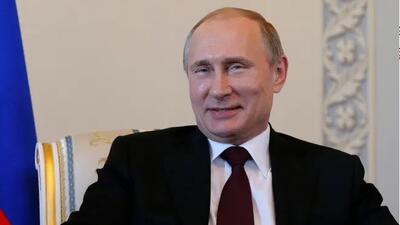How hydrocarbons and uranium enable the expansion of Russia’s world power

Putin's influence in the West grew for years before the invasion of Ukraine, thanks to the steady flow of cheap and reliable oil and gas flowing across Russia's borders. The European Union has managed to slowly tighten the energy sanctions against Russia, apparently limiting the damage to its economies, and this thanks to the luck of a not cold winter which limited gas consumption. Europe has experienced an unusually mild season which has allowed it to avoid a major crisis.
But even Russia has managed to avoid much of the economic damage that the world had predicted. While Europe has slowly imposed more energy sanctions and imported less Russian gas, it has been very slow to pull the trigger on significant and broad energy sanctions that could have greatly exacerbated the energy crisis. Second, revenues from oil and gas – 45% of the Russian government's coffers – have skyrocketed thanks to extremely high prices. Thirdly, Russia's economic safeguards have been extremely effective. Fourth, Europe, the UK and the US may have banded together to squeeze Russia, but much of the world hasn't.
Long before the invasion, Europe's growing dependence on the Kremlin was a point of confrontation with the United States. This political tension came to a head with the Nord Stream 2 pipeline, which would have been the second major pipeline to directly transfer natural gas from Germany to Russia. Even before its construction, Germany depended on Russia for half of its natural gas supplies. But the $11 billion pipeline never came online.
The world's dependence on Russian energy is far from over. For example, Russia's sizeable nuclear energy industry has managed to avoid sanctions altogether due to its irreplaceable contribution to the global nuclear energy sector.
Russia's state-owned Rosatom nuclear energy company is a key global source of nuclear fuel, enrichment services and funding lines for new nuclear plants, which are prohibitively expensive for almost any private company. Nearly one in five nuclear power plants in the world is located in or built in Russia. And even now Rosatom is expanding. Currently, the company is engaged in the construction of another 15 nuclear power plants internationally. In fact, Russia has used its long nuclear arm to increase influence in African countries that otherwise could not afford to build the expensive nuclear power plants (as China did).
The spread of Russia's nuclear influence has gained it considerable influence in the world, and this dominance is paying off. Imposing sanctions on Russia's nuclear power would be a logistical and political nightmare, thanks to a "Russian doll of interconnected dependencies," in the words of Paul Dorfman, president of the Nuclear Consulting Group. The outlook for the Russian economy overall is not good this year, but it looks like it can continue to count on the nuclear industry to keep raising rubles. The result could lead to an even longer and more exhausting war in Ukraine if the world is unable to reduce its dependence on the Kremlin for nuclear fuel and funding.

Thanks to our Telegram channel you can stay updated on the publication of new articles from Economic Scenarios.
The article How hydrocarbons and uranium enable the expansion of Russia's world power comes from Economic Scenarios .
This is a machine translation of a post published on Scenari Economici at the URL https://scenarieconomici.it/come-idrocarburi-e-uranio-permettono-lespansione-del-potere-mondiale-della-russia/ on Fri, 07 Apr 2023 14:28:27 +0000.
